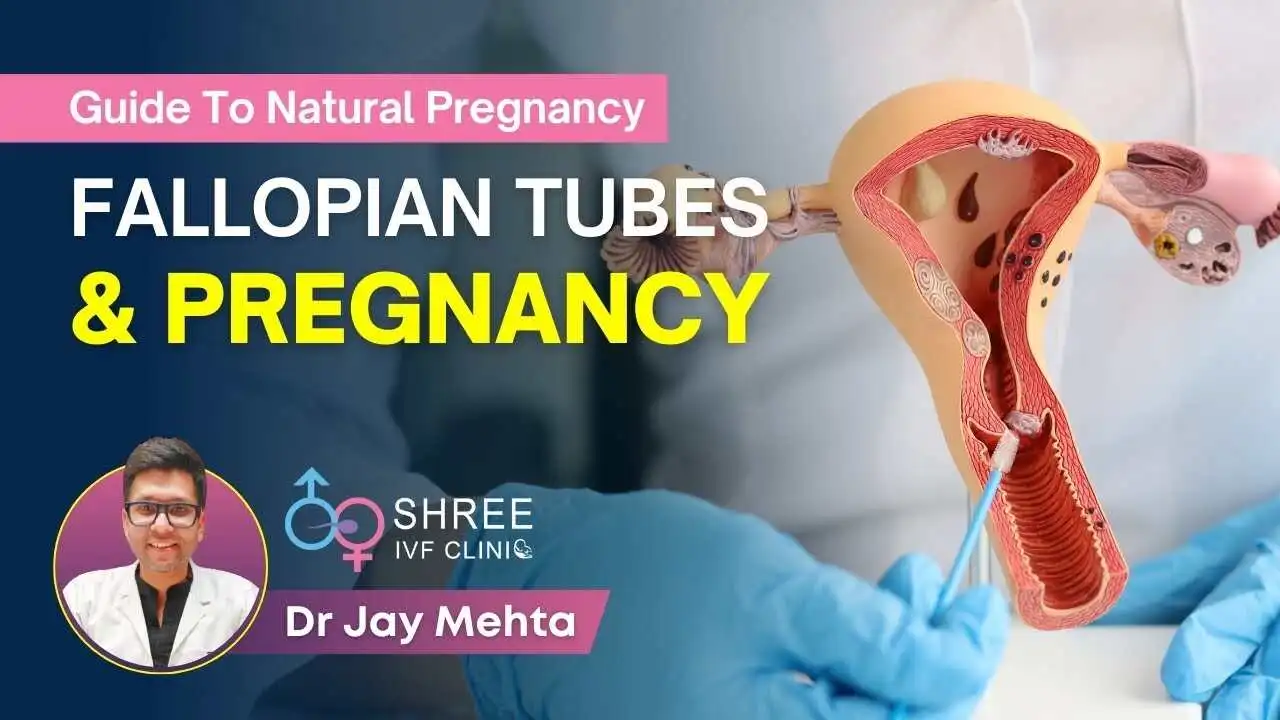How to Get Pregnant?
UPDATED ON 2 MAY. 2022
AUTHOR
Dr Jay Mehta
Scientific Director & IVF Specialist with 10+ years of experience
TREATMENT
CONDITION
GET IN TOUCH ON
First and foremost, you should be aware that all reports of both the female and male partners must be healthy. For women, this means that the quality of their eggs, fallopian tubes, and uterus must be normal, and for males, this means that their sperm count or other semen characteristics should be normal.
Two Important Factors for Pregnancy
Pregnancy necessitates the consideration of two factors:
Fertilization:
After a sexual encounter, the male partner’s seminal fluid is deposited in the vaginal canal, an extremely effective procedure. Out of a million sperm, only one sperm swims through the uterus and into the fallopian tube, where the sperm and egg fuse together to form a baby.
Following fertilisation, it develops into a blastocyst by splitting a single cell. After that, the embryo is transferred into the uterus, where it is implanted on day 6 or 7, referred to as implantation.
Implantation:
Another essential operation is the embryo’s implantation into the uterus, after which it begins to develop and expand. As the plant matures, it produces a hormone known as hCG. This hormone may be detected in both the blood and the urine.
During 10-12 days, the whole treatment is completed. However, on days 25 and 26, a significant amount of hCG is released into the bloodstream of pregnant women. As a result, the period is missed, and pregnancy may be discovered with a home pregnancy test kit at the convenience of the individual.
How to get pregnant?
To get pregnant, sperm must fertilize an egg. It is legally considered to be pregnant when a fertilized egg (embryo) adheres to the wall of your uterus, where it develops into a baby over nine months. However, there are some distinct ways in which this might occur.
The most typical method for women to get pregnant is via vaginal intercourse, which occurs when an individual with a penis ejaculates into the vagina of another person. Sperm cells in semen (cum) travel up the vaginal canal, via the cervix and uterus, and into the fallopian tubes throughout a pregnancy.
If there is an egg in the fallopian tube and it comes into contact with sperm, the fertilized egg will migrate down into the uterus and become viable. Pregnancy occurs when the fertilized egg forms an attachment to the uterus wall.
Even if the penis does not ejaculate within the vagina, it is possible to get pregnant via other forms of sexual activity. However, this is far less often. If semen (cum) comes into contact with the vulva or the area around the vaginal entrance, sperm cells may swim into the vagina and result in implantation.
This may occur if sperm drops or is wiped over the vulva or if anyone rubs your vulva or vagina with their fingers or sex toys that have wet sperm on them, irritating. Pre-ejaculate (pre-cum) may also include a trace amount of sperm, which means that if pre-cum enters the vaginal canal, it has the potential to produce pregnancy.
You may also get pregnant using several types of alternative insemination or in-vitro fertilisation procedures. By inserting sperm into your vagina or uterus with a syringe or other instrument, you may achieve pregnancy via other methods.
A sperm bank or fresh sperm from an anonymous donor are options for those who want to have a family (like a partner or family friend). Alternative insemination is a viable alternative for single persons, couples who cannot produce sperm, and couples who are experiencing infertility.
In-vitro fertilization is a procedure in which a doctor removes eggs from your or another person’s body and combines them with sperm in a laboratory to fertilise the eggs. After that, the doctor will insert the fertilised eggs (embryos) into your uterine cavity.
If one or more of the embryos successfully adheres to the lining of your uterus, pregnancy is declared. In-vitro fertilization (IVF) aids in the conception of women experiencing infertility.
Read More – Can You Get Pregnant With One Follicle?
How long does it take for a woman to get pregnant?
The length of time it takes to get pregnant varies from person to person and may be influenced by various variables like your genetics, age, and overall health.
If you’re fertile and have unprotected vaginal intercourse, there’s a very significant probability that you’ll get pregnant within a year of starting the process. Many women attempt to conceive within a year. Everyone, however, is different; some individuals process information much more quickly, while others may take longer.
If you’ve been trying to conceive for six months to a year without success, see your doctor or go to your local health centre to see if they can assist you and ensure that everything is in order.

5,140+
Google Reviews
397K+
subscribers
” Every individual and couple’s journey is unique, and
finding the right solutions tailored to their specific
circumstances can make all the difference “
Conclusion
There are many options for conceiving a child. Understanding your fertility and ovulation cycles might help you boost your chances of becoming pregnant. In addition, your doctor can assist you in making informed decisions about your pregnancy.
The practice of Dr. Jay Mehta and the Shree IVF Clinic is conveniently located for patients throughout Mumbai. Our Doctor is One of the best gynecologists in Mumbai. Schedule Your Appointment Today!
AUTHOR
Dr Jay Mehta
Scientific Director & IVF Specialist with 10+ years of experience
CONDITION
CALL US 24/7 FOR ANY HELP
GET IN TOUCH ON
Share Article on
Recommended Reading
Best Sex Position to Get Pregnant Naturally
Best positions to get pregnant—try missionary or using pillows under your hips. Small changes can boost your chances of conceiving
Importance of the Fallopian Tubes in Fertility
Blocked fallopian tubes can prevent natural pregnancy. Understand their role and explore solutions for boosting your fertility
Diet & Nutrition for Natural Pregnancy
In pregnancy, eat foods that are rich in carbohydrates, proteins, vitamins, & minerals. Balanced nutrition, regular exercise, and a healthy weight are key to boosting natural conception chances.




